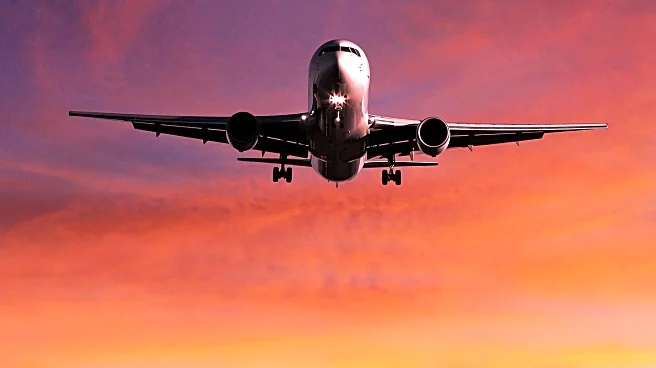What's Happening?
Flight attendants from various airlines have shared their insights on managing anxiety during turbulence, a common concern among air travelers. Turbulence, caused by factors such as wind and air temperature changes, often leads passengers to fear the worst. Flight attendants emphasize that planes are designed to handle turbulence and pilots are trained to manage it effectively. Techniques suggested include understanding the science behind turbulence, practicing meditation and deep breathing, and finding distractions such as reading or watching movies. Additionally, passengers are encouraged to communicate with flight attendants for support and reassurance during flights.
Why It's Important?
Managing anxiety during turbulence is crucial for passenger comfort and safety. By understanding the nature of turbulence and employing calming techniques, passengers can reduce stress and enjoy a more pleasant flying experience. This is particularly important as air travel continues to be a popular mode of transportation. Airlines offering meditation and relaxation resources, such as partnerships with companies like Headspace, demonstrate a commitment to passenger well-being. The advice from flight attendants highlights the importance of mental health support in the travel industry, potentially influencing airline policies and passenger services.
What's Next?
Airlines may continue to expand their in-flight wellness offerings, incorporating more mental health resources to assist anxious flyers. As passenger awareness of turbulence increases, airlines might enhance communication strategies, providing more detailed information about flight conditions. Flight attendants could receive additional training to better support passengers with anxiety, ensuring a safer and more comfortable travel experience. The industry may also explore technological advancements to minimize turbulence effects, further improving passenger comfort.
Beyond the Headlines
The focus on managing anxiety during turbulence reflects broader societal trends towards prioritizing mental health and wellness. As public awareness of mental health issues grows, industries like aviation are increasingly expected to address these concerns. This shift may lead to more comprehensive mental health support across various sectors, promoting a culture of understanding and empathy. Additionally, the collaboration between airlines and wellness companies could inspire similar partnerships in other industries, enhancing overall consumer experiences.











